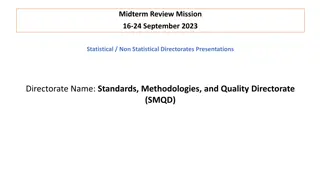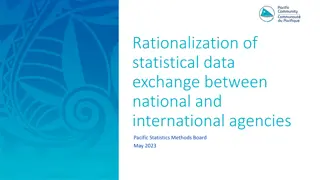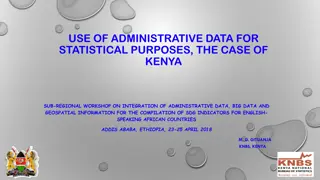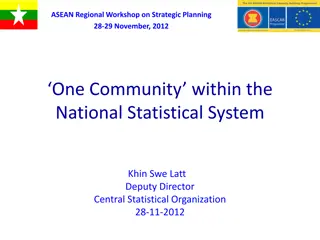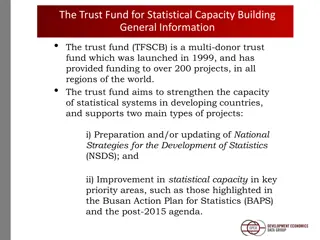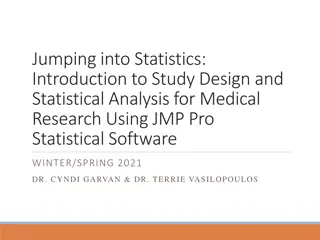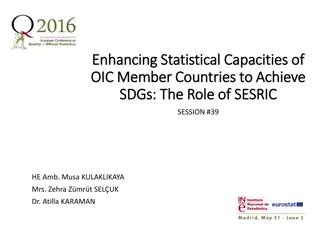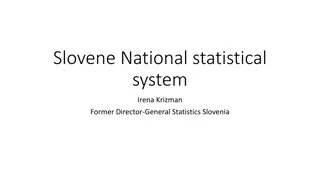Building Modern National Statistical Systems: Key Pillars and Challenges
Exploring the essential pillars for a modern National Statistical System, including legal framework, institutional coordination, and data infrastructure. Emphasizing the complexity of economic processes and the need for integrated approaches for statistical capacity building to meet SDG targets and other national priorities.
Download Presentation

Please find below an Image/Link to download the presentation.
The content on the website is provided AS IS for your information and personal use only. It may not be sold, licensed, or shared on other websites without obtaining consent from the author.If you encounter any issues during the download, it is possible that the publisher has removed the file from their server.
You are allowed to download the files provided on this website for personal or commercial use, subject to the condition that they are used lawfully. All files are the property of their respective owners.
The content on the website is provided AS IS for your information and personal use only. It may not be sold, licensed, or shared on other websites without obtaining consent from the author.
E N D
Presentation Transcript
The Fundamental Pillars necessary for a modern National Statistical System Steve MacFeely United Nations Conference on Trade & Development STS 037
Key Question How best do we help countries develop flexible and responsive statistical systems that allow SDG targets (but also other national priorities) to be measured and monitored?
An important reminder 'Economic analysis cherishes the illusion that one good reason should be enough, but the determinants of complex processes are invariably plural and inter-related. Mono causal explanations will not work' David Landes The Wealth and Poverty of Nations (1998: p.517)
Another Question Do we need a more integrated approach across CCSA to statistical capacity building? Opportunities SDG Targets 9.1 Develop quality, reliable, sustainable and resilient infrastructure, including regional and trans-border infrastructure, to support economic development and human well-being, with a focus on affordable and equitable access for all 17.18 By 2020, enhance capacity building support to developing countries, including for LDCs and SIDs, to increase significantly the availability of high-quality, timely and reliable data disaggregated by income, gender, age, race, ethnicity, migratory status, disability, geographic location and other characteristics relevant in national contexts
Thank you steve.macfeely@unctad.org


